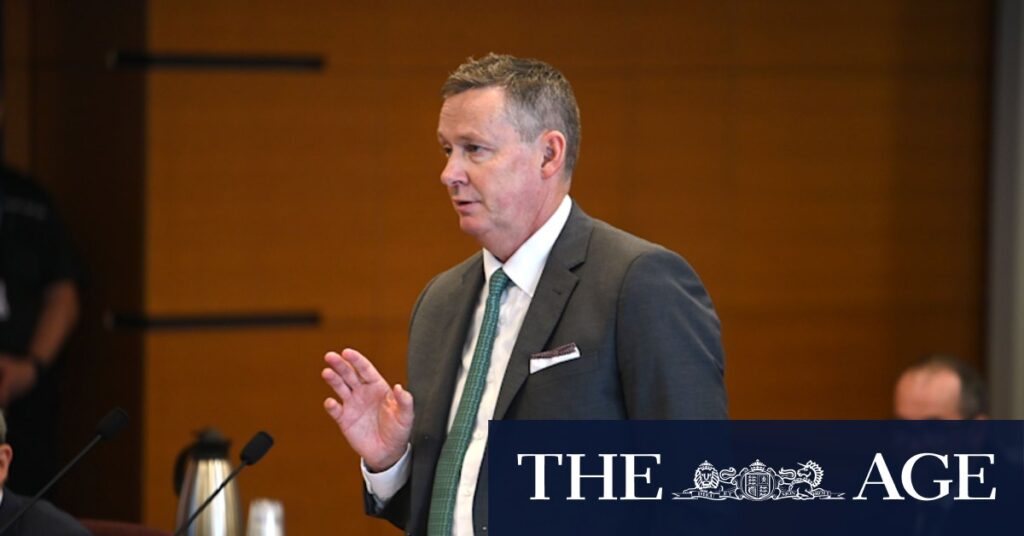
The commission of inquiry into CFMEU corruption has suffered a significant setback with the abrupt resignation of its senior counsel assisting and three junior barristers. This development casts doubt on the inquiry’s operations and its potential impact on political dynamics in Australia.
Veteran senior silk Liam Kelly, KC, who was recently appointed as the counsel assisting the commissioner, Stuart Wood, KC, has stepped down, threatening to derail the inquiry initiated by the conservative Queensland government. The inquiry was also intended to serve as a tool for the federal opposition to criticize the Albanese government for not addressing corruption in the construction sector.
Kelly was expected to play a pivotal role in probing witnesses from the CFMEU in Queensland, as well as individuals involved in crime syndicates and building firms operating in Victoria and NSW. Confidential sources revealed that Kelly, along with junior barristers Kate Juhasz, Polina Kinchina, and Ben Dighton, resigned after Kelly expressed concerns about the inquiry’s management and operations.
Internal Conflicts and Operational Challenges
According to Queensland government sources, Kelly’s concerns were dismissed by Wood, but they reportedly involved issues such as the failure to share crucial information and disagreements among senior staff regarding investigative strategies. A source close to the commission stated that new barristers are being recruited, and the inquiry’s investigations are continuing as planned.
The commission of inquiry was launched following revelations of widespread corruption in the construction industry, as exposed by the “Building Bad” series of reports by this masthead, 60 Minutes, and The Australian Financial Review.
Reactions and Implications
Jacqueline King, the Queensland Council of Unions general secretary, described the barristers’ departures as “very concerning” and questioned the integrity of the inquiry as it prepares for public hearings in the coming weeks. “If the commission is going to stand the test of time for being a commission that has any integrity, then, you know, questions need to be answered about why so many staff are all departing at the same time,” King stated.
“Not only do unions need to know that, to think that there is any credence to the commission, but the members of the public also need to know if the commission is being used as a political witch hunt or is it being used for proper purposes.”
Attempts to reach the four barristers for comments were unsuccessful. Meanwhile, Wood’s appointment as commissioner has been met with skepticism by the Labor movement due to his longstanding ties to the Liberal Party.
Law Enforcement and Broader Context
The inquiry’s secretary, Bob Gee, also left his position this week to become Queensland’s interim Victims’ Commissioner. These departures occur as law enforcement intensifies efforts to apprehend those suspected of criminal activities within the industry.
Travers Grubb, a martial arts expert and former bodyguard of industry titan Daniel Grollo, was charged with extorting a major building firm for over $6 million in exchange for union peace. Grubb was previously hired by Grocon, Australia’s largest privately owned developer-builder, to protect CEO Daniel Grollo during industrial disputes with the CFMEU.
There is no suggestion that Daniel Grollo was aware of or involved in Grubb’s alleged criminal activities, which reportedly occurred in October 2024. Concurrently, Taskforce Hawk has increased pressure on the Comanchero outlaw motorcycle gang for its involvement in the building industry along Australia’s east coast, conducting a search at the home of a key gang figure linked to the inquiry.
National Response and Future Outlook
The intensified law enforcement activities by Victoria Police and a Melbourne-based Australian Federal Police team, coupled with the early setback to the Crisafulli government’s commission of inquiry in Queensland, underscore the fragmented response across Australia to corruption and organized crime in the building industry and CFMEU.
The inquiry’s future now hangs in the balance as new legal representatives are sought, and its ability to proceed without further disruptions remains uncertain. The developments raise questions about the effectiveness of current strategies to combat corruption within the construction sector and the political ramifications of the inquiry’s outcomes.





